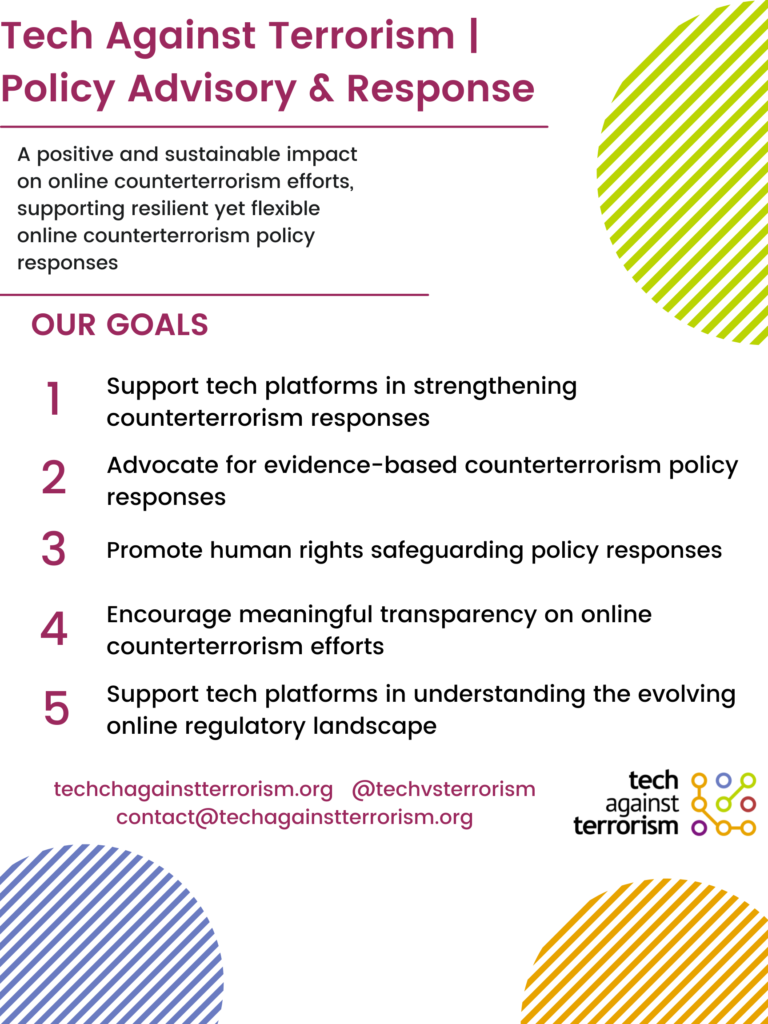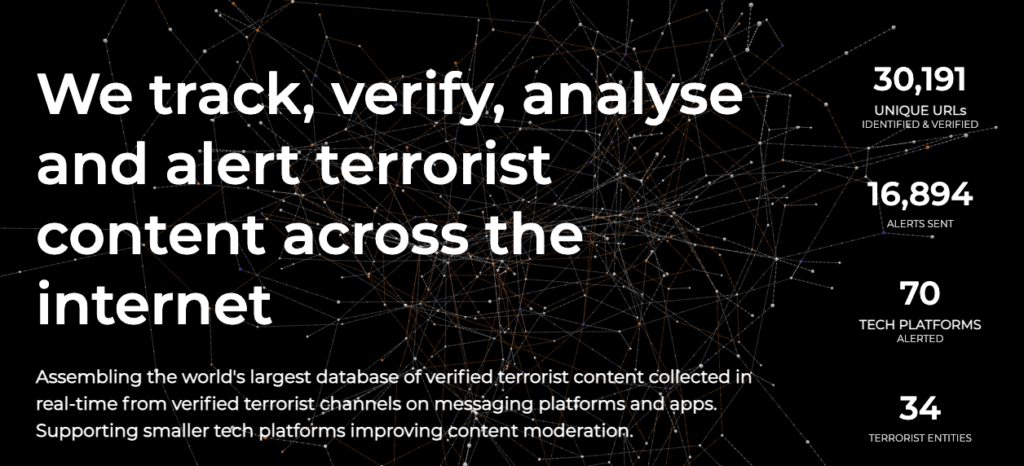Reader's Digest – 1 October 2021
Our weekly review of articles on terrorist and violent extremist use of the internet, counterterrorism, digital rights, and tech policy.
Tech Against Terrorism Updates
- We are hiring! We are looking for a paid Policy & Research intern to join our team for a period of 6 months. You can find out more and apply here by Monday, 4 October.
- This week, Tech Against Terrorism collaborated with the Commonwealth on delivering a series of inter-governmental workshops for policy makers in Sub-Saharan Africa.
Tech Against Terrorism Resource Spotlight
- Transparency reporting is a vital aspect of online counterterrorism efforts, and it is paramount that platforms and governments increase accountability mechanisms in this area. To this end, we have created the Tech Against Terrorism Guidelines.

- The Tech Against Terrorism Guidelines ask that governments and tech companies report on a small set of core metrics to increase transparency on online counterterrorism efforts. In deciding these metrics, we have prioritised meaningfulness, consideration for the transparency process (policies, processes, systems, and outcome), and smaller tech company capacity. The Guidelines have been informed by our engagement with smaller tech companies and our work in supporting them with producing transparency reports. We also hope that the Guidelines can instigate improved government transparency on their engagement with tech platforms with regard to counterterrorism.
Top Stories
- Over 50 organisations and individual cybersecurity experts, including many members of the Global Encryption Coalition, wrote an open letter calling on the Belgian government to drop law enforcement access requirements in the Draft law on the collection and storage of identification, traffic and location data in the electronic communications sector and their access by the authorities.
On the topic of encryption, we have recently published a report: “Terrorist Use of End-to-End Encryption: State of Play, Misconceptions, and Mitigation Strategies.”
- This week, the Digital Services Act is being negotiated among Members of the European Parliament (MEPs). Through an open letter to MEPs, Access Now, Electronic Frontier Foundation, and European Digital Rights network are calling for fundamental rights safeguards that are crucial to a free and democratic society.
You can read our response to the EU’s proposed Digital Services Act from January 2021 here.
You can also read our analysis of the EU's online regulation landscape, as part of our Online Regulation Series Handbook here.
- Amnesty International announced that Algerian authorities are increasingly resorting to broadly worded terrorism-related charges to prosecute journalists, human rights defenders and political activists, and to criminalise two political organisations by labelling them as “terrorists” in a new clampdown on dissent.
- The European Audiovisual Observatory has published a report on “Regulation of Social Media in Russia”.
- The Combating Terrorism Center at West Point has released its new report: “Cash Camps: Financing Detainee Activities in Al-Hol and Roj Camps,” that traces how funds move into, around and out of two detention camps holding Islamic State affiliates in northeastern Syria.
Far-right Terrorism and Violent Extremism
- Far-right cryptocurrency follows ideology across borders: In this piece, Erika Kinetz and Lori Hinnant discuss how far-right extremists are raising significant amounts of money from around the world through cryptocurrencies. The authors note that following the ban by traditional financial institutions, far-right extremists have taken refuge in digital currencies to avoid the oversight of banks, regulators, and courts. Kinetz and Hinnant note that far-right extremist figures such as Andrew Anglin likely turned to Bitcoin for practical reasons, yet that “part of the appeal of cryptocurrency to the radical right is ideological," given its alternative nature and the authority that it circumvents. However, Kinetz and Hinnant highlight that while cryptocurrencies have a reputation for secrecy, Bitcoin was built for transparency and can provide a public footprint. Given this public footprint, some far-right extremists have abandoned Bitcoin and asked supporters to send money only in Monero, a “privacy coin” designed to enhance anonymity by hiding data about users and transactions. Kinetz and Hinnant also shed light on the transnational aspect of cryptocurrencies, as Blockchain data has demonstrated that radical right donors are part of a global community of believers who sent money to entities in multiple countries. European groups like the Nordic Resistance Movement and Génération Identitaire also received donations from North America-focused exchanges. Similarly, U.S. entities like American Renaissance, Daily Stormer and WeAreChange have received money via exchanges that serve customers in Western and Eastern Europe. (Kinetz and Hinnant, AP News, 28.09.2021).
For any questions, please get in touch via:
contact@techagainstterrorism.org
- News (241)
- Counterterrorism (54)
- Analysis (52)
- Terrorism (39)
- Online Regulation (38)
- Violent Extremist (36)
- Regulation (33)
- Tech Responses (33)
- Europe (31)
- Government Regulation (27)
- Academia (25)
- GIFCT (22)
- UK (22)
- Press Release (21)
- Reports (21)
- US (20)
- USA (19)
- Guides (17)
- Law (16)
- UN (15)
- Asia (11)
- ISIS (11)
- Workshop (11)
- Presentation (10)
- MENA (9)
- Fintech (6)
- Threat Intelligence (5)
- Webinar (5)
- Propaganda (3)
- Region (3)
- Submissions (3)
- Generative AI (1)
- Op-ed (1)

